Creatures Great & Small
Since animals can help people survive, they are important to the families of sponsored children living in poverty. See how these kids care for their animals.
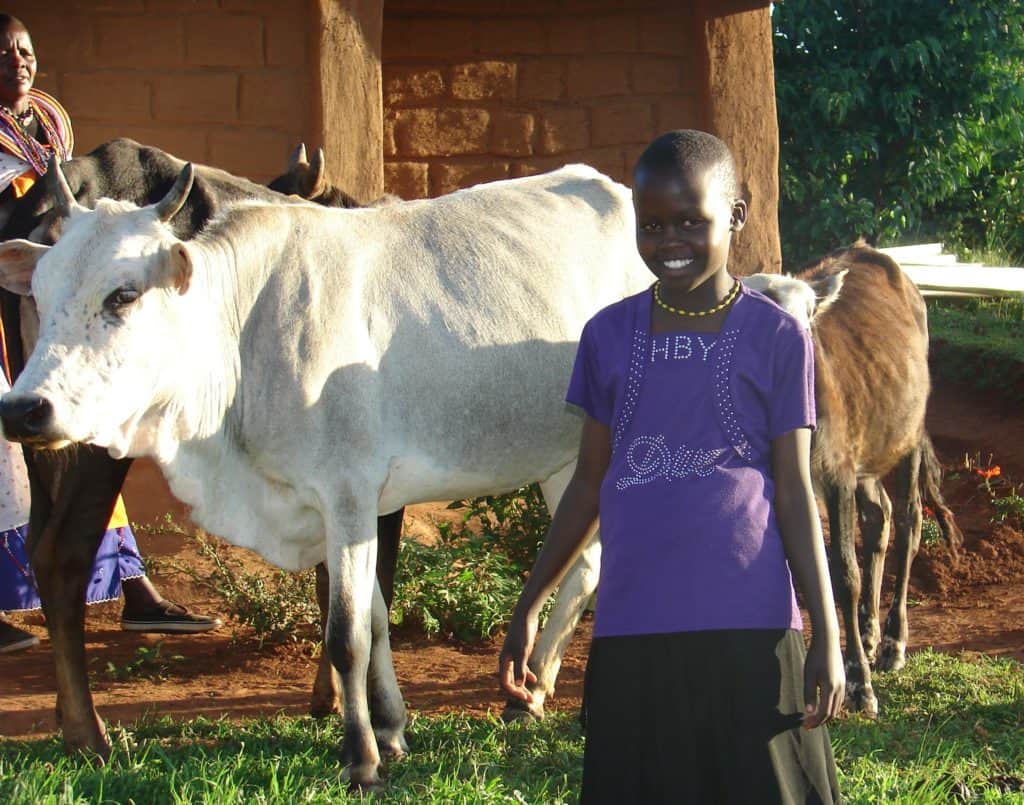
Moo Juice
Irene belongs to the Masai tribe in Kenya ??, a group of people who raise cows and goats for milk and meat. After Irene's family bought a dairy cow with a gift of money from her sponsor, Irene could drink milk each morning before school. The milk - along with nutritious meals served at her Compassion center - helped Irene stay healthy and focused in school.
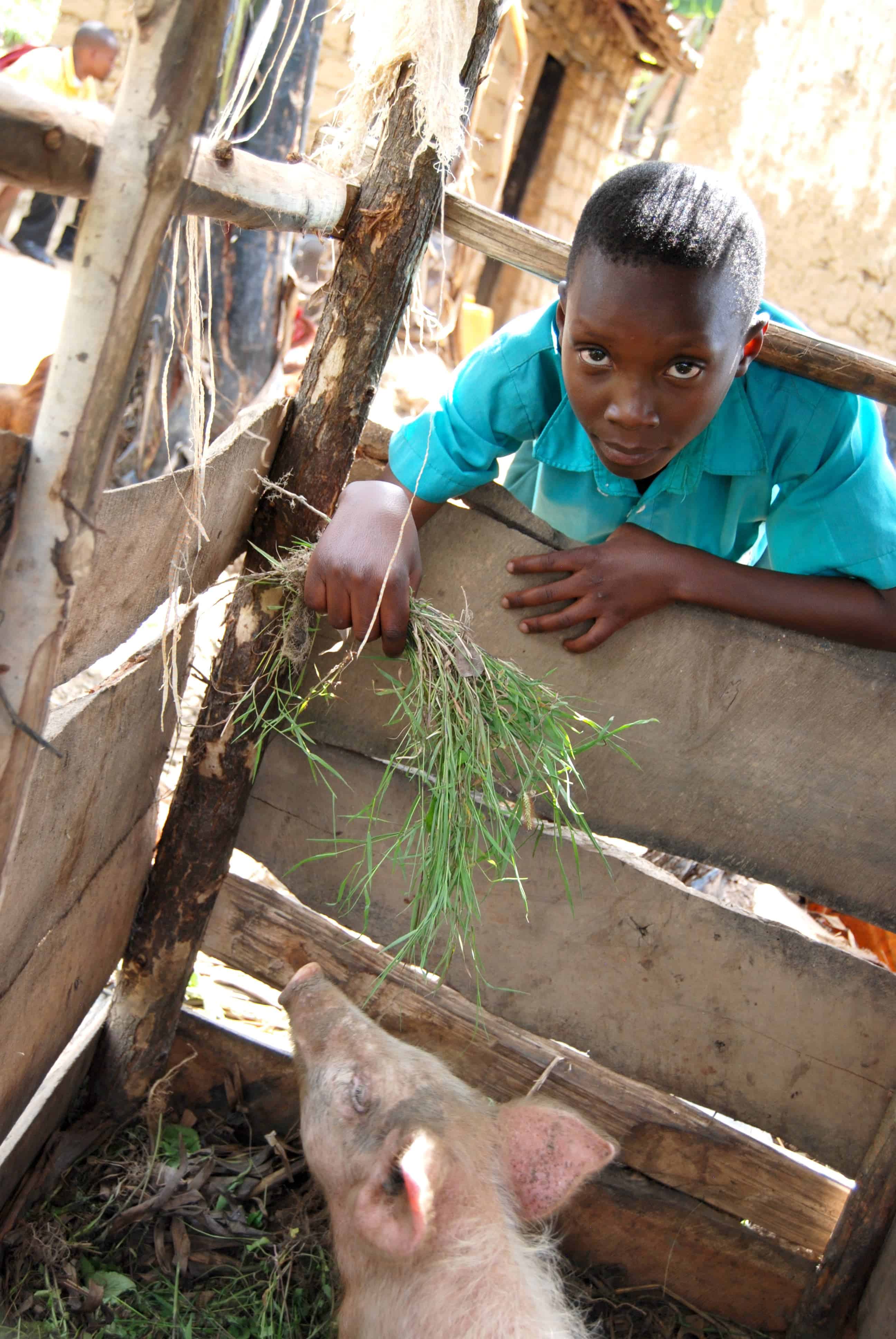
Garden Helper
Fabien in Rwanda ?? feeds a pig that was given to his family by the church that runs Fabien's Compassion center. The pig provides something that's worth a lot, even though it might not sound like it - manure. Fabien and his family use the manure as fertilizer in their garden, which grows food. The family also earns money by selling extra manure to other people for their gardens.
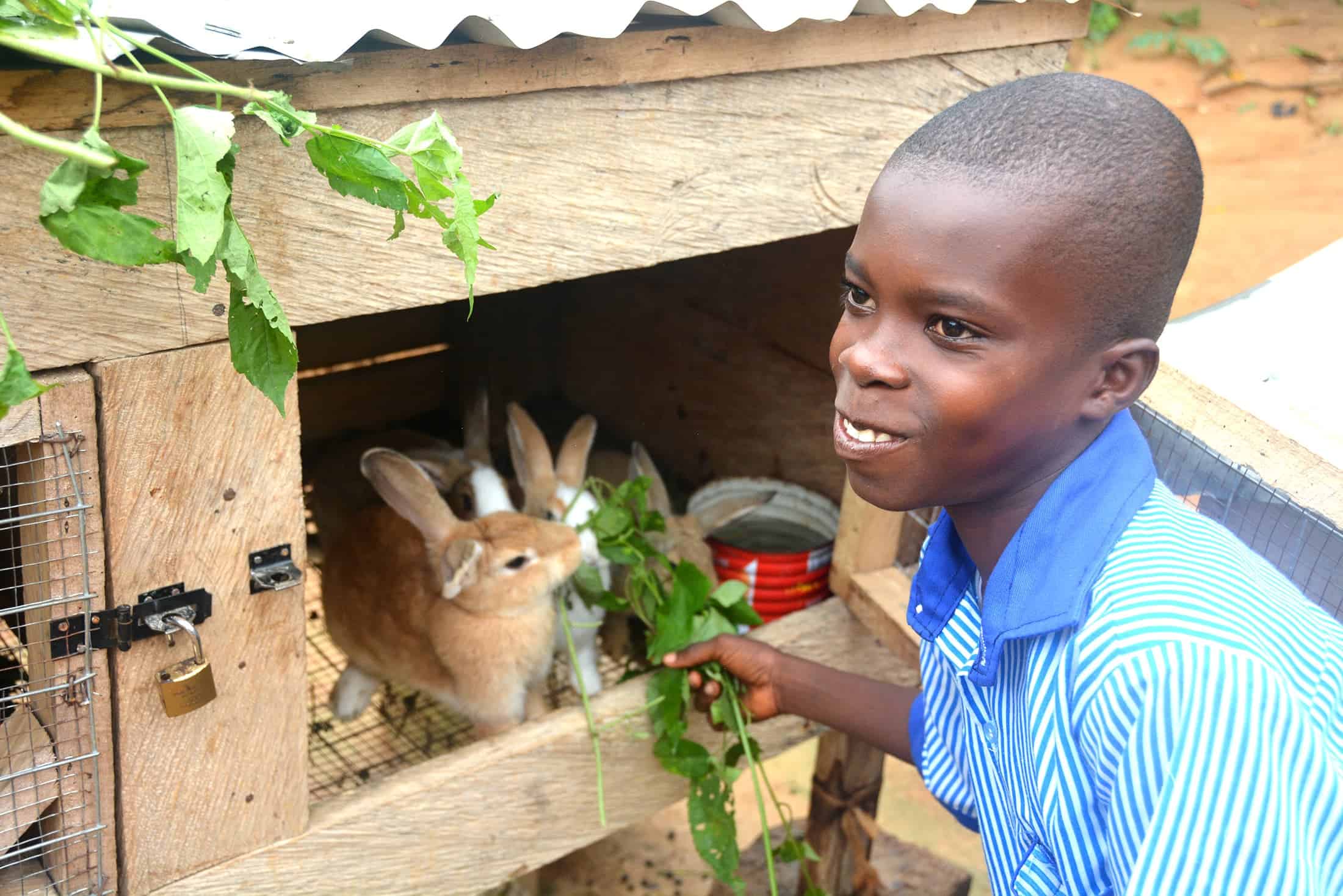
Bunny Boom
Some sponsored kids in Ghana ?? are learning to raise rabbits, which give birth to lots of bunnies and don't cost much to care for. The pastor at one of Compassion's church partners gave rabbits from his personal farm to the families of 10 sponsored kids who showed an interest in caring for the animals. The families can now sell the rabbits for money or eat their meat.
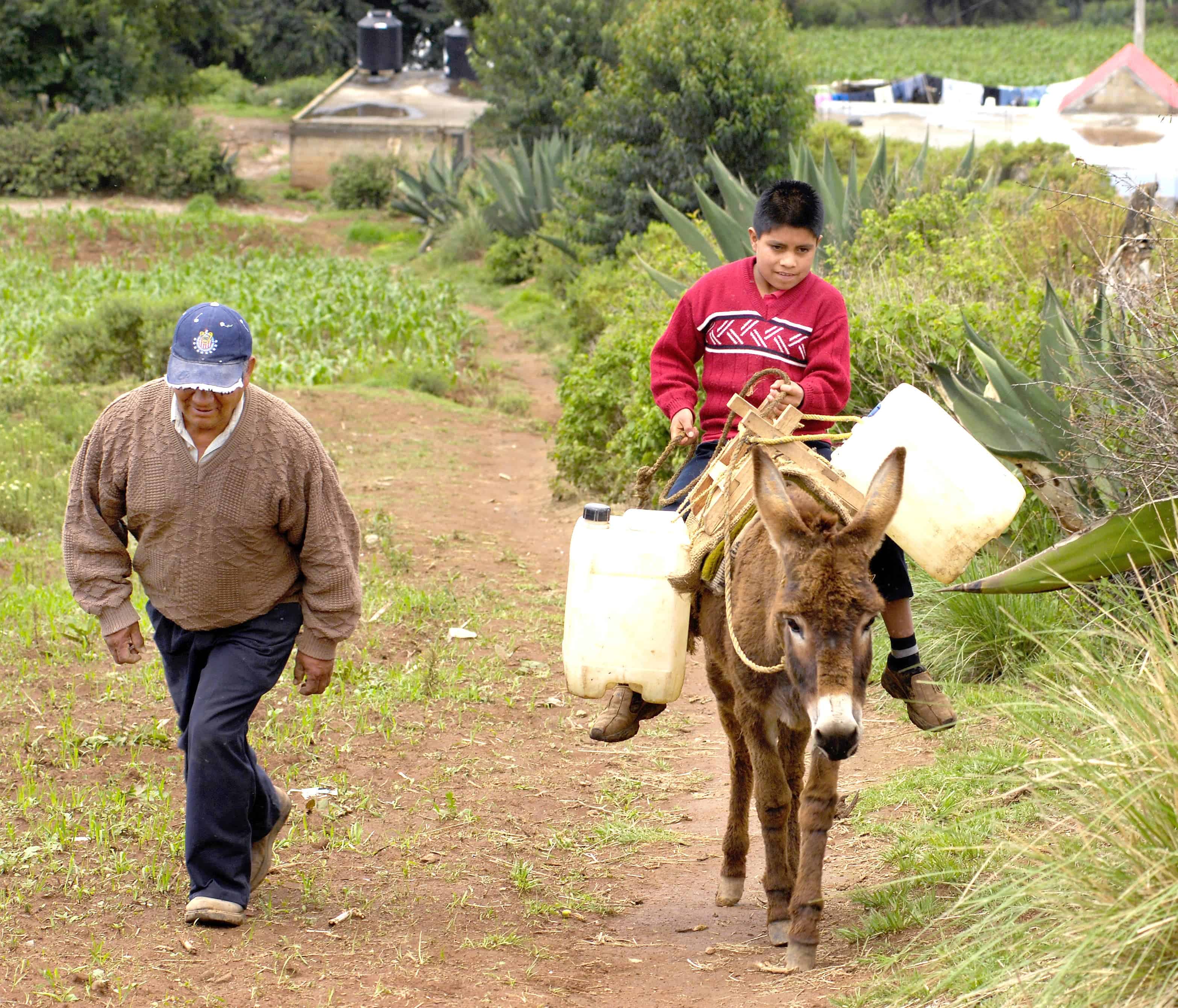
A Lighter Load
A donkey helps Ariel haul water from a stream about a mile away from his home in Mexico ??. Many families in poverty don't have running water in their homes, so they have to walk long distances to fill up cans at ponds, rivers or wells before lugging the heavy load home. Pack animals like donkeys make the tough chore easier.
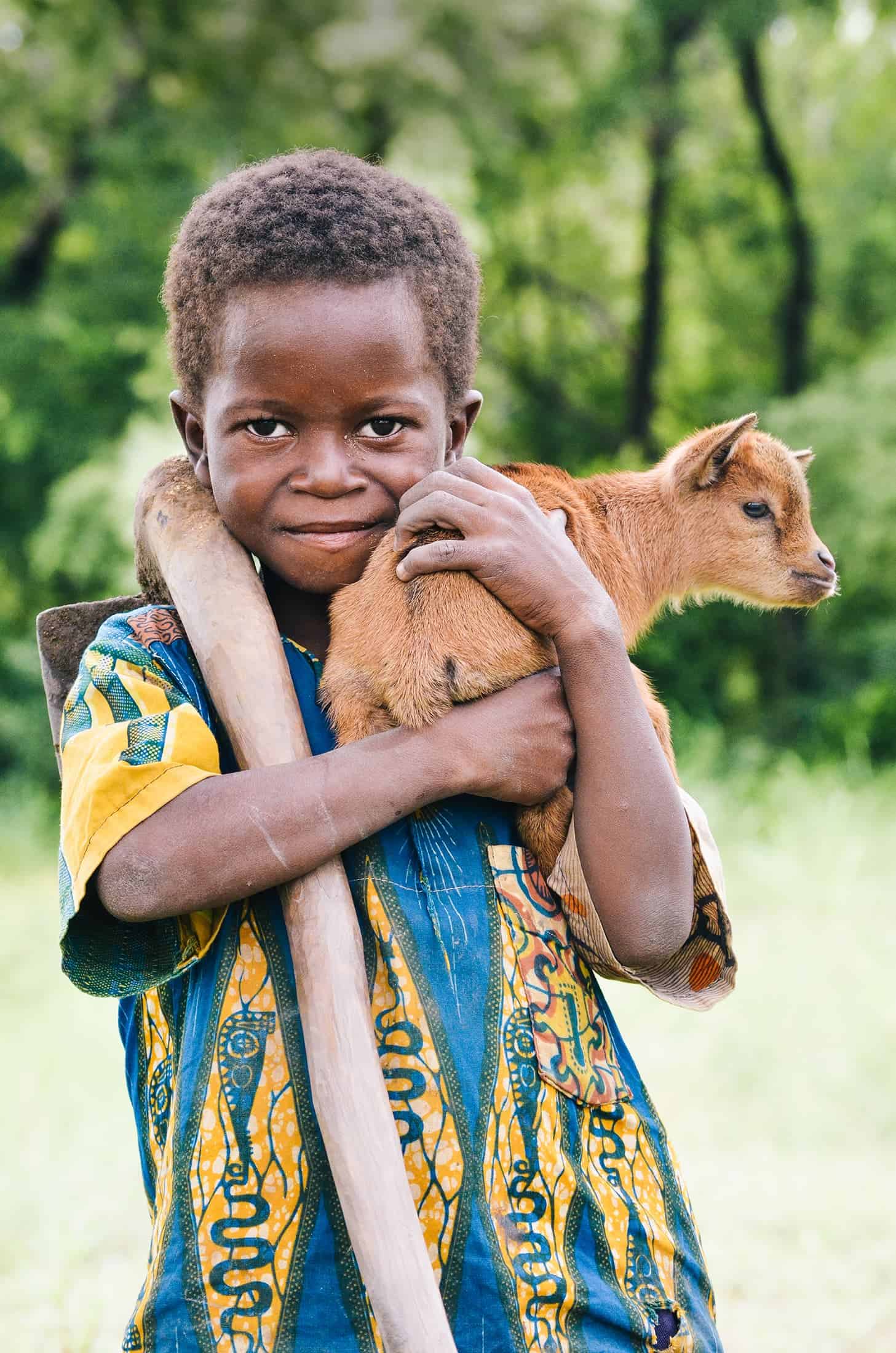
Sponsored 6-year-old Emmanuel helps on his family's farm in Burkina Faso ??.





Moo Juice
Irene belongs to the Masai tribe in Kenya ??, a group of people who raise cows and goats for milk and meat. After Irene's family bought a dairy cow with a gift of money from her sponsor, Irene could drink milk each morning before school. The milk - along with nutritious meals served at her Compassion center - helped Irene stay healthy and focused in school.
Garden Helper
Fabien in Rwanda ?? feeds a pig that was given to his family by the church that runs Fabien's Compassion center. The pig provides something that's worth a lot, even though it might not sound like it - manure. Fabien and his family use the manure as fertilizer in their garden, which grows food. The family also earns money by selling extra manure to other people for their gardens.
Bunny Boom
Some sponsored kids in Ghana ?? are learning to raise rabbits, which give birth to lots of bunnies and don't cost much to care for. The pastor at one of Compassion's church partners gave rabbits from his personal farm to the families of 10 sponsored kids who showed an interest in caring for the animals. The families can now sell the rabbits for money or eat their meat.
A Lighter Load
A donkey helps Ariel haul water from a stream about a mile away from his home in Mexico ??. Many families in poverty don't have running water in their homes, so they have to walk long distances to fill up cans at ponds, rivers or wells before lugging the heavy load home. Pack animals like donkeys make the tough chore easier.
Sponsored 6-year-old Emmanuel helps on his family's farm in Burkina Faso ??.
Moo Juice

Irene belongs to the Masai tribe in Kenya ??, a group of people who raise cows and goats for milk and meat. After Irene's family bought a dairy cow with a gift of money from her sponsor, Irene could drink milk each morning before school. The milk - along with nutritious meals served at her Compassion center - helped Irene stay healthy and focused in school.
Garden Helper

Fabien in Rwanda ?? feeds a pig that was given to his family by the church that runs Fabien's Compassion center. The pig provides something that's worth a lot, even though it might not sound like it - manure. Fabien and his family use the manure as fertilizer in their garden, which grows food. The family also earns money by selling extra manure to other people for their gardens.
Bunny Boom

Some sponsored kids in Ghana ?? are learning to raise rabbits, which give birth to lots of bunnies and don't cost much to care for. The pastor at one of Compassion's church partners gave rabbits from his personal farm to the families of 10 sponsored kids who showed an interest in caring for the animals. The families can now sell the rabbits for money or eat their meat.
A Lighter Load

A donkey helps Ariel haul water from a stream about a mile away from his home in Mexico ??. Many families in poverty don't have running water in their homes, so they have to walk long distances to fill up cans at ponds, rivers or wells before lugging the heavy load home. Pack animals like donkeys make the tough chore easier.

Sponsored 6-year-old Emmanuel helps on his family's farm in Burkina Faso ??.
More Than a Mustache
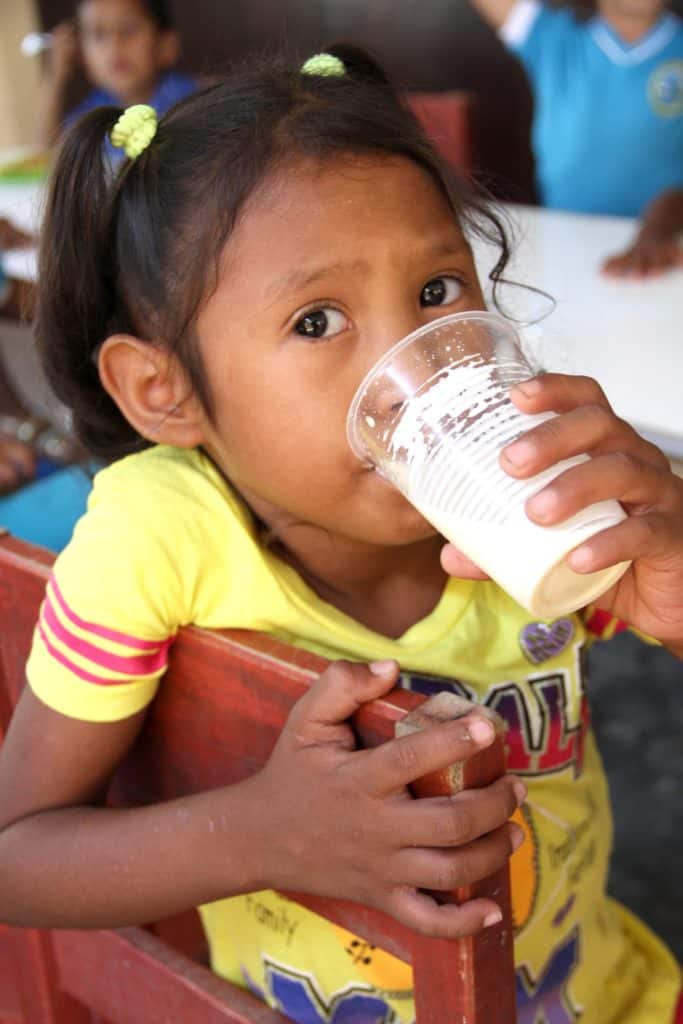
A sponsored girl enjoys a glass of milk at her Compassion center.
- Milk is a good source of calcium, a nutrient that builds strong bones and teeth.
- Many families who live in poverty can't afford to buy milk and don't own animals that produce it. But sponsored children often get milk at their Compassion centers.
- Worldwide, cow's milk is the most popular milk that humans drink.
- In developing countries, people also drink milk from buffalo, goats, camels and sheep.